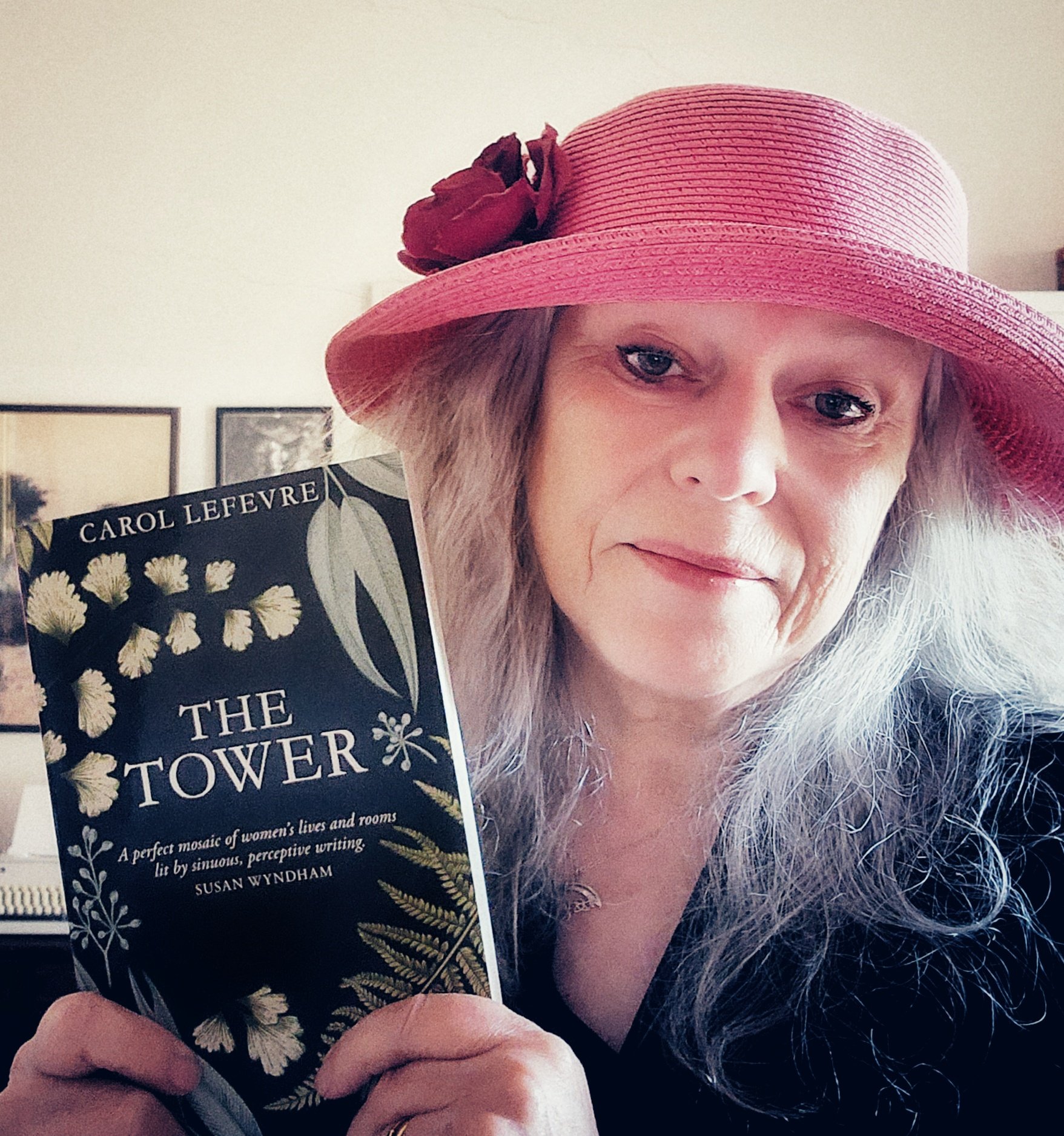Endorsements
A perfect mosaic of women's lives and rooms lit by sinuous, perceptive writing.
—Susan Wyndham
Stories of tenderness and compassion, with a keen eye for the telling detail. Rich in sentiment but always free of sentimentality, refusing easy judgements and neat endings, what ultimately endures is the power of female friendship and the desire to create beauty through the making of art, and in the spaces of everyday life.
—Susan Midalia
Reviews
The Tower follows Carol Lefevre’s well-received 2021 Christina Stead Prize–shortlisted novella Murmurations. Set in Australia and England, The Tower is exquisitely sophisticated in imagery and form. It is structured around a major continuous narrative across 12 short stories centring on a woman named Dorelia. Unbeknown to her children, Dorelia buys a house with a tower, a symbol from fairytales, particularly Rapunzel. Dorelia reimagines the crone from the original story as the heroine, a childless woman seeking a daughter. As Dorelia declines physically and mentally, she sees herself resembling a witch who is a queen in disguise, retreating into her tower. This spiralling tale is interspersed with stories and backstories connected by shared characters and themes. Women’s lives—from youth to old age, encompassing memory and its loss—are explored as characters grapple with sacrificing independence for family or choosing freedom and the seething stigma of childlessness. Young women wish to escape their families, old women are infantilised by their children. Other stories in this innovative and impeccably crafted experimental work circle these feminist themes, which also include buildings as places of either refuge or imprisonment, and the importance of art (the book features an epigraph from painter Margaret Olley). Layered and revelatory, The Tower invites re-reading. It is recommended for readers of Amanda Lohrey’s The Labyrinth and Charlotte Wood’s The Weekend.
— Joy Lawn for BOOKS + PUBLISHINGAdelaide author Carol Lefevre is not as well-known as many of her peers and surely lacks the wider recognition she deserves. Her recent novella Murmurations was short-listed for the 2021 Christina Stead Prize for Fiction in the NSW Premier’s Literary Awards and the Fiction Prize in the 2022 SA Festival Awards for Literature. And now The Tower emerges without fanfare as a quiet, intricately layered masterpiece of dazzling prose and compassion that gleams with a radiant sense of the nourishing beauty of abiding female friendships.
Download the page here.
— Susan Kurosawa, THE WEEKEND AUSTRALIAN Bookclub
As with her novella Murmurations, shortlisted for the Christina Stead Prize, Carol Lefevre's The Tower is a composite work, constructing a novel from a suite of interconnected stories. It's an exquisitely crafted novel true to the complexities and contradictions of women's experience that dares to reimagine the limiting conventions of gender and narrative.
Read the full review here.
— Cameron Woodhead, THE AGE + SYDNEY MORNING HERALDAdmirers of Carol Lefevre’s earlier books, and nostalgists in general, will delight in her latest offering. Her artistic eye evokes the patina of a silvering vintage mirror reflecting societal and literary traditions. Both in tone and preoccupations, The Tower (Lefevre’s sixth book) continues traditions cast in several Australian literary classics. Familiar, too, is Lefevre’s favoured form. Several of the book’s chapters have previously been published as short stories, but Lefevre has worked them seamlessly into this novel’s overarching chronicle.
While there is a small-town mystery at the heart of the novel, the real challenge is piecing together the relationships and connections across its many stories. That a linking thread is constant, if at times barely visible, offers immense satisfaction in the end. It is what elevates this work to a truly accomplished novel, even while offering the discrete gems of small stories within.
Subscribers can read the full review here.
— Charle Malycon, AUSTRALIAN BOOK REVIEW
READER REVIEW SITESComposite novels a.k.a. short story cycles, can be tricky things to read: though they have the form of short stories the reader can’t just ‘move on’ to the next one because you know that the stories are linked in some way. You need to remember who’s who and what their issues are, so that you can discover the connections so cunningly woven into the text. So it is with The Tower, Carol Lefevre’s latest venture with this form. Read the full review.
— Lisa Hill, ANZ Litlovers







